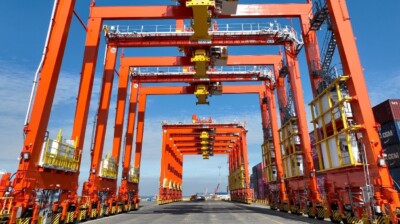As of today, China has been hit by an increased import charge of 10% for any item entering the US, writes an opinion piece published by logistics platform Descartes. Because of this, they’ve now vowed to retaliate. And, with the EU, Canada, and Mexico also set to have tariffs imposed on them in the coming weeks, the question on everyone’s lips is: What is next for global logistics businesses?
In simple terms, tariffs are taxes on goods imported from other countries. The majority of tariffs are set as a percentage of the value of the goods, which the importer generally pays. So, for example, if a product imported to the US from China (after the 10% tariff imposed today) is worth 5 dollars, it would face an additional 0.50 cent charge applied to it. By increasing the price of imported goods, the US hopes to encourage consumers to buy cheaper domestic products instead, to help boost their own economy’s growth by growing the US economy, protecting jobs, and raising tax revenue.
Jackson Wood (pictured), Director of Industry Strategy, Global Trade Intelligence at Descartes, states: “Since the beginning of the COVID-19 pandemic, companies conducting global trade have been dealing with an increasingly volatile and uncertain environment. From product shortages, congested shipping lanes and military conflicts to political upheaval and environmental disasters, supply chains have been tested to the limit for the past five years.”
Jackson continued: “What has remained constant through these disruptions is the imperative to build resiliency and responsiveness into global supply chains. This includes diversifying supplier/customer relationships, identifying alternative trade lanes, and potentially leveraging trade instruments (including Foreign Trade Zones and Free Trade Agreements) that can mitigate the risks posed by this volatility. These same concepts apply to the new paradigm of tariffs and protectionism—those companies that have prioritised resiliency and responsiveness in their global trade operations will be better positioned to thrive.”
However, only time will tell until we see the true effects of the upcoming trade war on the horizon…








